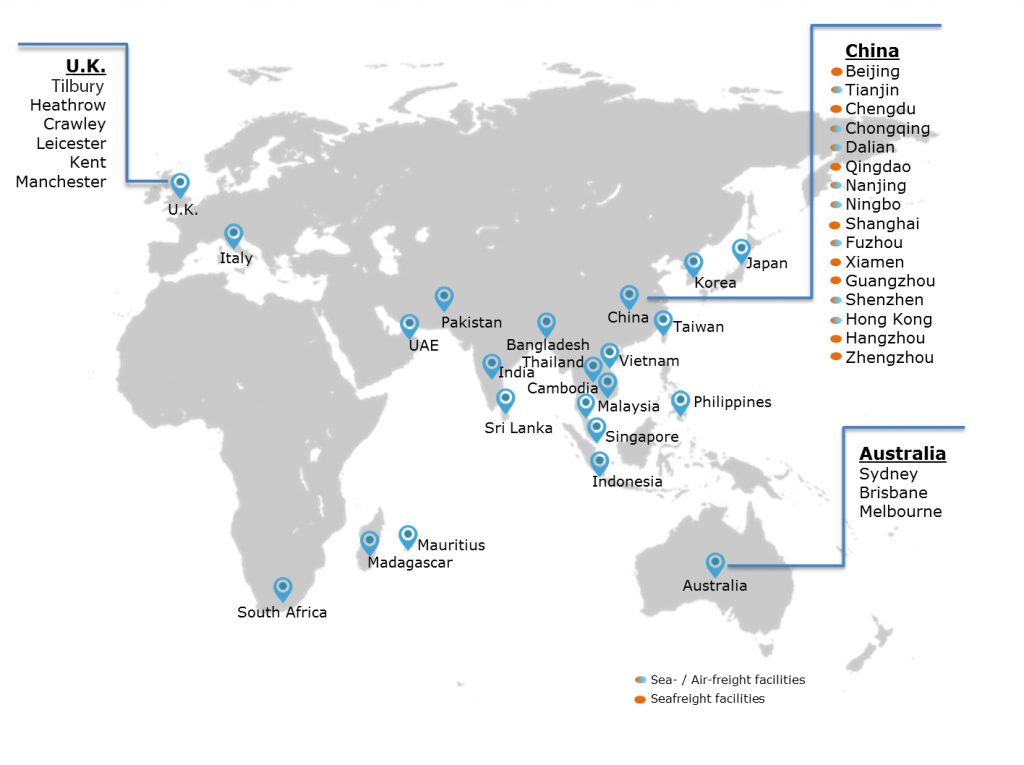International Service Hubs: The Key to Global Expansion
In today’s interconnected world, international service hubs have become a crucial element for businesses aiming to expand globally. These hubs offer strategic advantages for companies looking to improve efficiency, reduce costs, and enhance customer service across multiple regions. Whether you’re a startup or an established company, leveraging service hubs can unlock new growth opportunities and streamline operations across borders.

1. What Are International Service Hubs?
International service hubs are centralized locations that businesses set up in different regions around the world to manage operations like customer support, logistics, and administrative functions. These hubs act as regional centers, helping companies serve their global customers more effectively.
-
Key Functions:
-
Customer Support: Service hubs can handle inquiries and offer support in multiple languages.
-
Logistics and Operations: They help streamline supply chain and distribution processes, especially in emerging markets.
-
Data Management: These hubs also manage data analytics and back-office operations, reducing operational inefficiencies.
-
By establishing these hubs, companies can better respond to local market needs while benefiting from economies of scale.
2. Why Set Up International Service Hubs?
Setting up international service hubs provides businesses with several advantages, especially in terms of efficiency, cost-effectiveness, and scalability. These hubs are especially important for companies looking to operate in multiple regions or countries without having to duplicate their efforts across borders.
-
Cost Savings: By centralizing services in one region, companies can reduce overhead costs and take advantage of local tax incentives.
-
Improved Customer Experience: Hubs closer to target markets ensure faster response times and more tailored services.
-
Scalability: As companies grow, service hubs make it easier to scale operations without a significant increase in resources.
Incorporating international hubs into your global strategy can help streamline operations and create a seamless customer experience.
3. Strategic Locations for International Service Hubs
Choosing the right location for a service hub is one of the most critical decisions businesses face. The best locations are often in countries with favorable economic conditions, skilled workforces, and robust infrastructure.
-
Popular Hub Locations:
-
Asia: Countries like India and the Philippines are popular for customer support hubs due to their cost-effective labor and large English-speaking populations.
-
Europe: Ireland and Poland are well-known for their tech and IT support hubs, offering a balance of skilled labor and access to EU markets.
-
Latin America: Countries like Mexico and Brazil offer proximity to the US and competitive labor costs, making them ideal for both customer service and logistics hubs.
-
Carefully considering these factors helps ensure that your service hub is positioned for success.

4. Benefits of Using International Service Hubs
The use of international service hubs offers businesses various operational and strategic benefits. From faster delivery times to improved customer satisfaction, here’s why more companies are adopting this model.
-
Faster Market Penetration: Hubs enable businesses to enter new markets quickly by leveraging local knowledge and reducing operational delays.
-
24/7 Support: With hubs in different time zones, businesses can offer round-the-clock customer support, ensuring no time zone is left uncovered.
-
Language and Cultural Adaptation: Service hubs can cater to different languages and cultural expectations, making businesses more adaptable to regional markets.
These advantages make international service hubs a cornerstone for businesses with global ambitions.
5. The Role of Automation in International Service Hubs
As businesses grow and expand their service hubs, automation plays an increasingly important role in streamlining operations. Automation tools can simplify tasks like customer support, data management, and even marketing, helping businesses scale efficiently without compromising on service quality.
-
Customer Support Automation: Tools for automated chatbots and email responses can ensure that customers receive quick answers to their inquiries at any time of day.
-
Marketing Automation: Platforms like Facebook, Zalo, and TikTok offer tools to automate posting, messaging, and lead generation, saving time and ensuring consistency across regions.
-
Data Analytics: Automated systems can collect and analyze customer data from multiple regions, offering insights that help businesses fine-tune their strategies.
By integrating automation into their service hubs, companies can achieve significant cost savings and improve operational efficiency.
6. Challenges in Managing International Service Hubs
While international service hubs offer numerous benefits, there are also challenges businesses must address to ensure their success. Managing hubs across different time zones, cultures, and languages can create complexities that need careful planning and resources.
-
Communication Barriers: Language differences and time zone challenges can complicate communication between teams and customers.
-
Regulatory Compliance: Different countries have different regulations regarding data security, labor laws, and tax policies, requiring businesses to stay updated on local laws.
-
Quality Control: Maintaining consistent service quality across different hubs is essential to ensure a uniform customer experience.
Despite these challenges, proper planning, and the use of the right technologies can mitigate most of the issues associated with managing international hubs.

7. How to Set Up Your Own International Service Hub
Setting up an international service hub involves several steps, including choosing the right location, staffing, and implementing the necessary technologies. Here’s a step-by-step guide to get started:
-
Select a Location: Choose a region that offers favorable economic conditions, a skilled workforce, and proximity to your target markets.
-
Set Up Infrastructure: Invest in technology and infrastructure that supports seamless communication and operations across regions.
-
Hire Local Talent: Hire staff with local market knowledge and language skills to better serve customers in the region.
-
Leverage Automation Tools: Use automation tools for marketing, customer support, and data analytics to streamline operations.
-
Focus on Scalability: Ensure that your hub is scalable and adaptable to future business growth.
By following these steps, businesses can ensure a smooth and efficient setup for their international service hubs.
FAQs
What are the key benefits of international service hubs?
International service hubs offer cost savings, faster market penetration, 24/7 support, and language and cultural adaptation for businesses looking to expand globally.
How do automation tools enhance service hubs?
Automation tools streamline customer support, data analysis, and marketing activities, allowing businesses to operate more efficiently and consistently across global markets.
What challenges should businesses expect when managing international service hubs?
Businesses may face communication barriers, regulatory compliance issues, and challenges in maintaining quality control across different hubs in various regions.
Where are the best locations to set up international service hubs?
Asia, Europe, and Latin America are popular regions for international service hubs due to favorable economic conditions, skilled labor, and proximity to key markets.
Conclusion
International service hubs are a game-changer for businesses aiming to expand globally. These hubs offer strategic advantages, such as cost savings, improved customer service, and scalability. By integrating automation tools and leveraging the right technologies, businesses can operate efficiently across regions and build stronger relationships with their customers worldwide.
To streamline your operations and make the most of global opportunities, consider implementing automation solutions from DUYTHIN.DIGITAL. Our platform provides advanced tools for social media management, SEO, and other digital processes, helping businesses automate tasks like posting, bulk messaging, and data scraping across platforms like Facebook, Zalo, and TikTok.